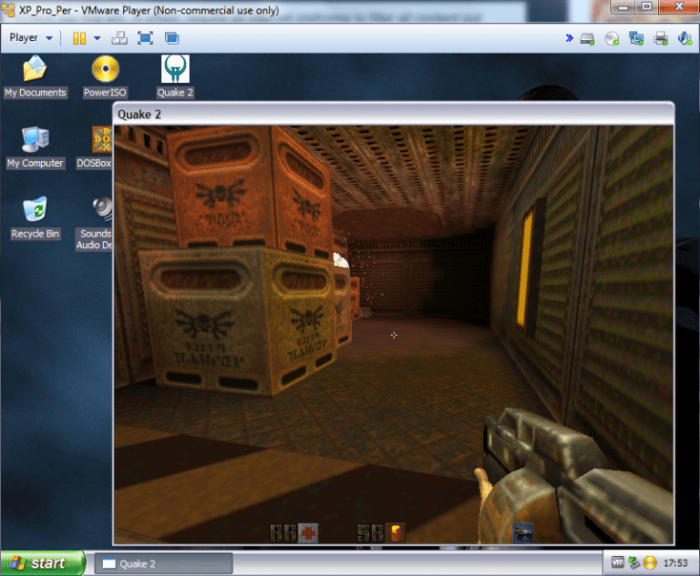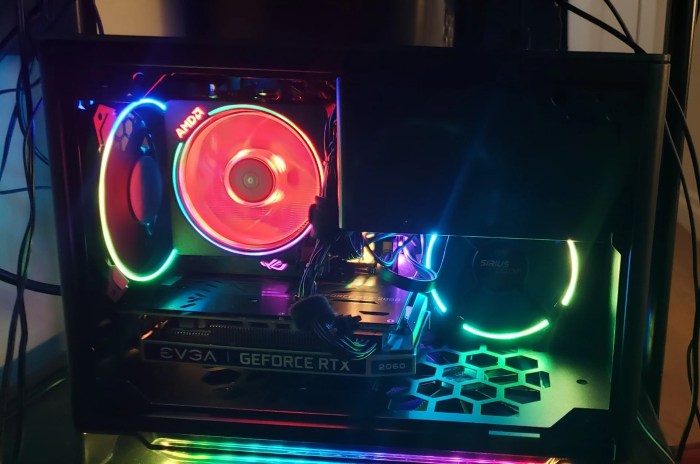Gaming on virtual machines (VMs) is an innovative approach that allows gamers to access high-performance gaming environments without the need for expensive hardware. This emerging technology offers a myriad of advantages, ranging from enhanced performance to cost savings, making it an attractive option for both casual and hardcore gamers alike.
Virtual machines essentially create a virtualized environment within a physical computer, enabling users to run multiple operating systems and applications simultaneously. In the context of gaming, VMs provide a dedicated gaming environment that is isolated from the rest of the system, ensuring optimal performance and stability.
Virtual Machine (VM) Overview

Virtual machines (VMs) are software environments that emulate a physical computer. They allow users to run multiple operating systems and applications on a single physical machine. This can be useful for a variety of purposes, such as testing software, developing applications, and running legacy applications.
There are a number of benefits to using VMs. First, they are isolated from the host operating system, which means that they cannot affect the host system or other VMs. Second, VMs are portable, which means that they can be easily moved from one physical machine to another.
Third, VMs are scalable, which means that they can be easily resized to meet the changing needs of an application.
However, there are also some limitations to using VMs. First, they can be slower than running applications directly on a physical machine. Second, VMs can be more expensive than physical machines. Third, VMs can be more complex to manage than physical machines.
There are a number of popular VM platforms available, including VMware vSphere, Microsoft Hyper-V, and Citrix XenServer.
Gaming on Virtual Machines

Gaming on VMs can be a great way to experience the latest games on a computer that is not powerful enough to run them natively. However, there are some advantages and disadvantages to gaming on VMs.
Advantages:
- VMs can allow you to play games on a computer that is not powerful enough to run them natively.
- VMs can isolate your games from the rest of your system, which can help to prevent them from causing problems.
- VMs can be portable, which means that you can easily take your games with you on a laptop or other device.
Disadvantages:
- VMs can be slower than running games directly on a physical machine.
- VMs can be more expensive than physical machines.
- VMs can be more complex to manage than physical machines.
The hardware and software requirements for gaming on VMs vary depending on the game that you want to play. However, in general, you will need a computer with a powerful CPU and GPU. You will also need a virtualization platform, such as VMware vSphere or Microsoft Hyper-V.
Finally, you will need a copy of the game that you want to play.
There are a number of things that you can do to optimize VM performance for gaming. First, you should make sure that your computer has enough RAM and VRAM. Second, you should use a dedicated graphics card for your VM.
Third, you should use a high-performance storage device for your VM.
Cloud Gaming Services

Cloud gaming services are a way to play games without having to download them to your computer. Instead, the games are streamed to your computer from a remote server. This can be a great option for people who do not have a powerful enough computer to play the latest games, or for people who want to play games on the go.
There are a number of different cloud gaming services available, including NVIDIA GeForce NOW, Google Stadia, and Amazon Luna. Each service has its own features and pricing, so it is important to compare them before choosing one.
Benefits:
- Cloud gaming services allow you to play games without having to download them to your computer.
- Cloud gaming services can be a great option for people who do not have a powerful enough computer to play the latest games.
- Cloud gaming services can be a great option for people who want to play games on the go.
Limitations:
- Cloud gaming services can be more expensive than buying and downloading games.
- Cloud gaming services require a fast and stable internet connection.
- Cloud gaming services may not be available in all regions.
Future of Gaming on VMs: Gaming On Virtual Machine

The future of gaming on VMs is bright. As VM technology continues to improve, it will become easier and more affordable to run games on VMs. This will make gaming on VMs a more attractive option for people who want to play the latest games on a computer that is not powerful enough to run them natively.
In addition, the development of new cloud gaming services is making it easier for people to play games on any device, regardless of their hardware. This is opening up the possibility of gaming to a wider audience than ever before.
However, there are still some challenges that need to be overcome before gaming on VMs can become mainstream. One challenge is the cost of VMs. VMs can be more expensive than physical machines, which can make them unaffordable for some people.
Another challenge is the performance of VMs. VMs can be slower than running games directly on a physical machine, which can make them less enjoyable to play. However, as VM technology continues to improve, the performance of VMs is likely to improve as well.
Detailed FAQs
Can I play any game on a virtual machine?
Yes, you can play most games on a virtual machine, provided that your VM has sufficient hardware resources and the necessary software drivers.
Is gaming on a virtual machine as good as gaming on a dedicated gaming PC?
While gaming on a virtual machine can provide a good gaming experience, it may not be as good as gaming on a dedicated gaming PC with high-end hardware components.
How can I optimize my VM for gaming?
There are several ways to optimize your VM for gaming, including allocating more CPU and memory resources, using a dedicated graphics card, and disabling unnecessary background processes.
